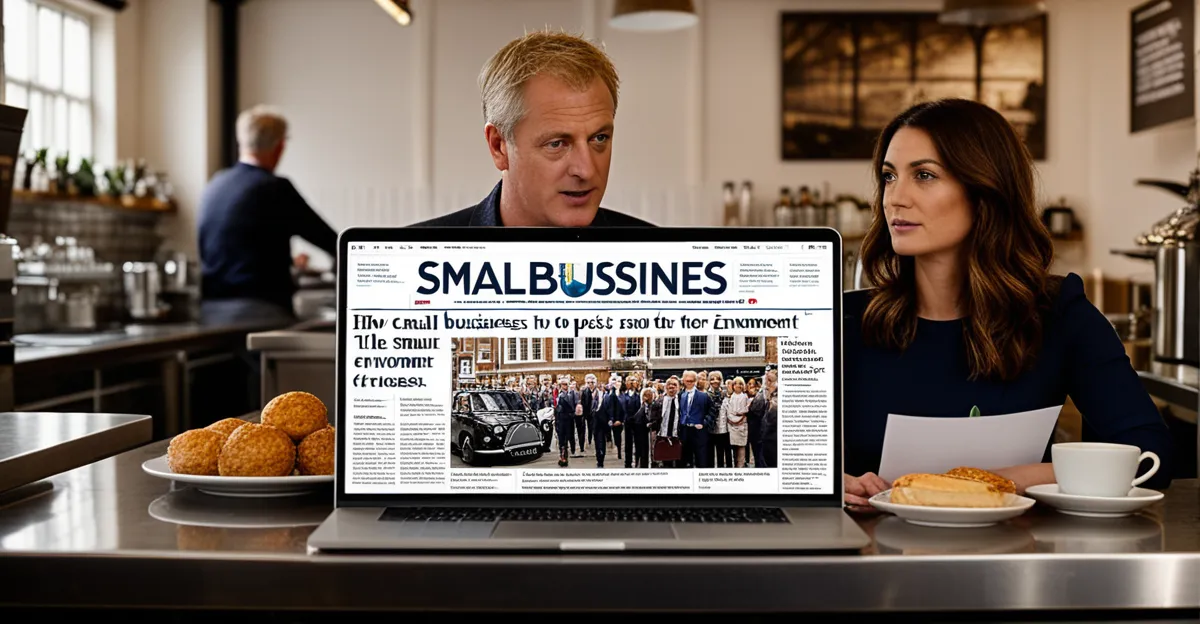Understanding the Current Post-Brexit Business Environment
Since Brexit, the post-Brexit UK business landscape has undergone significant shifts, especially in regulatory frameworks and economic conditions. The transition introduced several regulatory changes impacting how businesses operate, most notably alterations in trade laws, customs regulations, and compliance requirements.
Key challenges for small UK businesses include adapting to new trade policies that complicate cross-border transactions and navigating increased administrative burdens. Many have faced difficulties with fluctuating tariffs and altered supply chain logistics, emphasizing the importance of agility in responding to the Brexit impact.
In parallel : How Are Technological Advances Shaping the Future of UK Businesses?
Understanding these changes is critical. Businesses must constantly monitor ongoing modifications in legislation, which affect everything from data protection to import/export protocols. Adapting to this shifting trade environment is not just advisable but essential to maintain competitiveness and compliance.
Companies that proactively engage with updated regulations and focus on strategic adaptability tend to manage risks more effectively. Clear awareness of the post-Brexit UK business landscape, combined with practical knowledge of regulatory obligations, equips businesses to better handle disruptions and seize new opportunities.
In parallel : What’s Influencing the Future Strategies of UK Businesses?
Addressing Trade Barriers and Customs Procedures
Since Brexit, new trade barriers have emerged, reshaping how UK businesses handle international trade. One major shift involves customs procedures that now require more complex documentation. These include customs declarations, proof of origin, and additional certifications, which were previously unnecessary for trade within the EU single market. Failure to comply can cause significant delays at borders, increasing costs for businesses.
Businesses often face longer clearance times and greater uncertainty at ports, leading to inventory and cash flow challenges. The Brexit impact is evident in the increased administrative workload and expense tied to border crossings. How can companies mitigate these issues? Efficient management starts with understanding the updated import/export rules to reduce potential hold-ups.
Several tools help streamline customs processes, such as digital platforms for declaration submission and customs broker services. Utilizing these resourceful solutions can improve accuracy and speed. Furthermore, businesses are advised to invest in training staff on post-Brexit customs requirements to ensure compliance.
In summary, adapting to new trade barriers and revamped customs procedures is vital. Proactively managing these aspects minimizes border delays, reduces costs, and sustains smooth international trade flows in the post-Brexit era.
Legal Compliance for Small Businesses
Adhering to legal compliance in the post-Brexit UK business landscape is crucial, especially for small businesses navigating frequent regulatory changes. The Brexit impact extends to complex modifications in business regulations, including trade, employment, and data protection.
Small and medium-sized enterprises (SMEs) must prioritize compliance with updated laws, particularly the General Data Protection Regulation (GDPR), which remains a cornerstone of data privacy standards. Despite the UK’s departure from the EU, GDPR principles largely persist, requiring companies to secure personal data carefully and maintain clear consent policies. Failure to comply can result in hefty fines and reputational damage.
Moreover, post-Brexit policies continue to evolve, affecting sectors like product standards and labour laws. Businesses must dedicate resources to regularly monitor these changes. Engaging legal experts or compliance specialists can provide clarity on requirements and mitigate risks.
Proactive adaptation includes training staff on new obligations and implementing robust data protection strategies. This mitigates penalties and fosters trust among customers and partners. Understanding the ongoing interplay between UK and EU regulations enables small businesses to operate efficiently while meeting all legal standards in the post-Brexit UK business landscape.
Managing Supply Chain Disruptions
The post-Brexit UK business landscape has introduced significant challenges in supply chain management, particularly due to Brexit impact on sourcing and logistics. Businesses now face heightened risks of delays and disruptions at borders caused by new customs protocols and evolving regulatory changes. Identifying these vulnerabilities is crucial for maintaining smooth operations.
How can firms effectively manage these risks? Diversifying suppliers beyond traditional EU sources reduces reliance on any single region vulnerable to delays or restrictive trade barriers. This strategy helps mitigate interruptions and ensures steadier product flow. Additionally, fostering relationships with multiple logistics providers builds resilience against transport bottlenecks.
Leveraging technology significantly improves supply chain visibility. Tools such as real-time tracking and integrated inventory systems enable better forecasting and quicker response to unforeseen events. Enhanced transparency supports effective decision-making, minimizing disruptions caused by Brexit-related changes.
Moreover, adapting to shifting regulations by training staff and updating processes aligns supply chains with current compliance standards. Proactive management entails continuous monitoring of regulatory changes affecting supply chain management in the post-Brexit environment.
In summary, successful navigation of logistics challenges requires a multifaceted approach combining supplier diversification, technology adoption, and regulatory awareness, helping UK businesses thrive amid ongoing Brexit impact.
Navigating Changes in VAT and Tariffs
Brexit has introduced significant VAT changes and altered tariff regulations affecting UK businesses. One key difference is that VAT on goods moving between the UK and the EU now follows import VAT rules, requiring businesses to account for VAT at the point of import. Unlike before, where intra-EU trade was VAT-exempt, companies must now manage VAT payments on imports, increasing administrative demands.
New tariffs apply to certain goods under the UK’s independent trade policy. While there are zero tariffs on many products traded between the UK and EU if rules of origin are met, failure to comply results in tariff charges, raising costs. Understanding complex tariff regulations is critical for businesses to avoid unexpected expenses.
Practical tax compliance involves thorough documentation of goods’ origin and accurate VAT reporting. Using tools like the HMRC’s online systems can streamline VAT submissions and tariff declarations, reducing errors and delays.
Businesses should also consider consulting tax professionals to stay abreast of ongoing post-Brexit UK business landscape developments regarding VAT and tariffs. Proactive compliance supports smoother cross-border trade, controls costs, and helps companies adapt effectively to the evolving regulatory changes driven by the Brexit impact.

Comments are closed